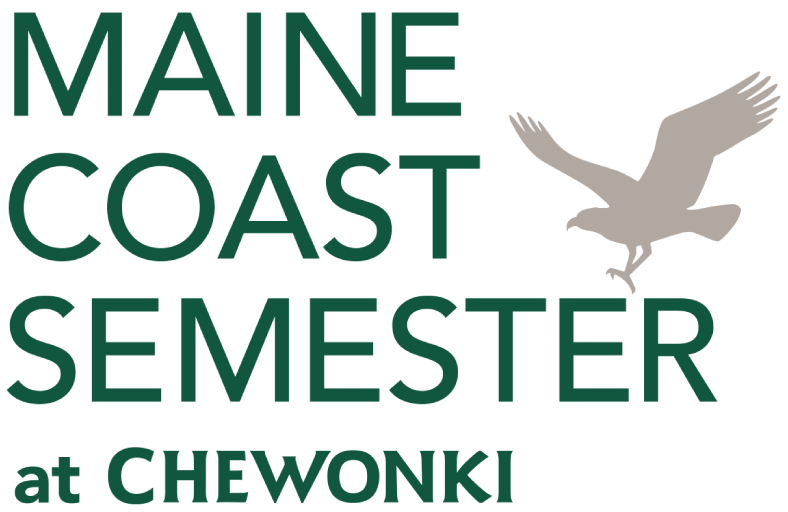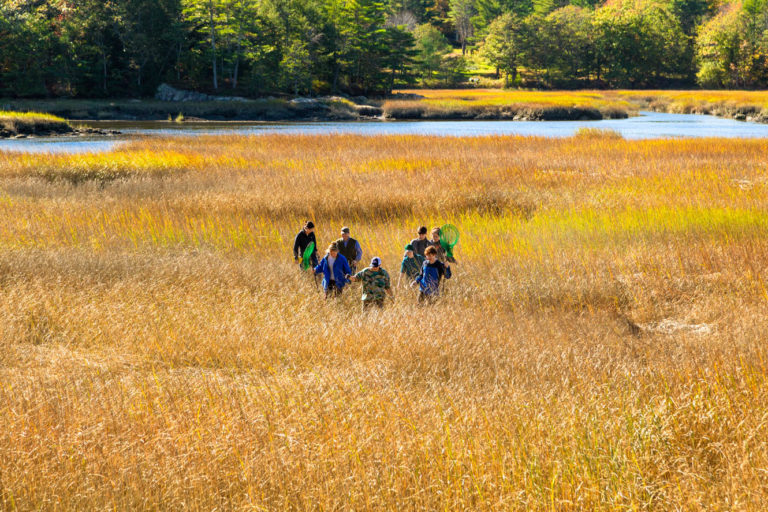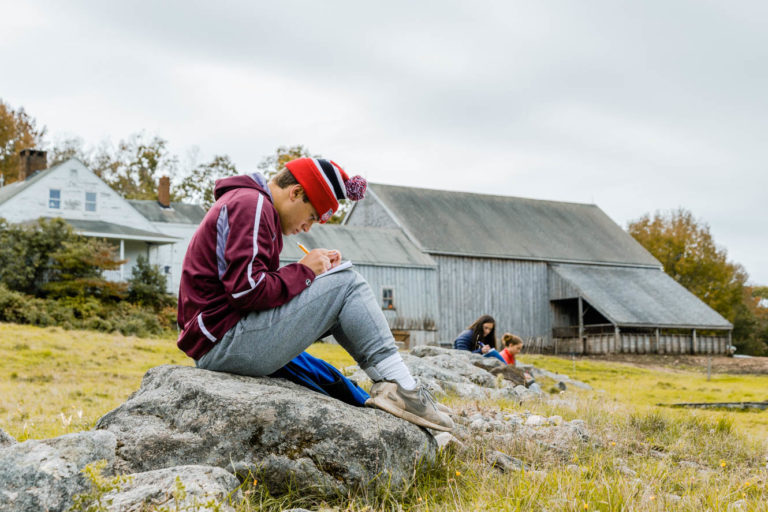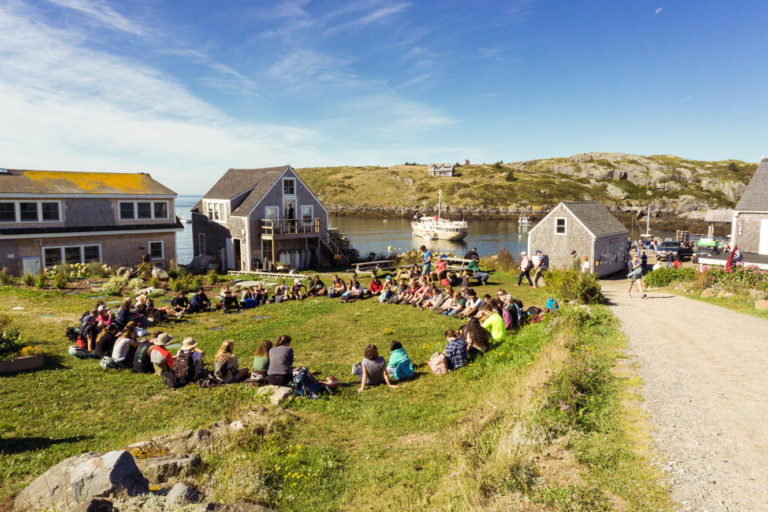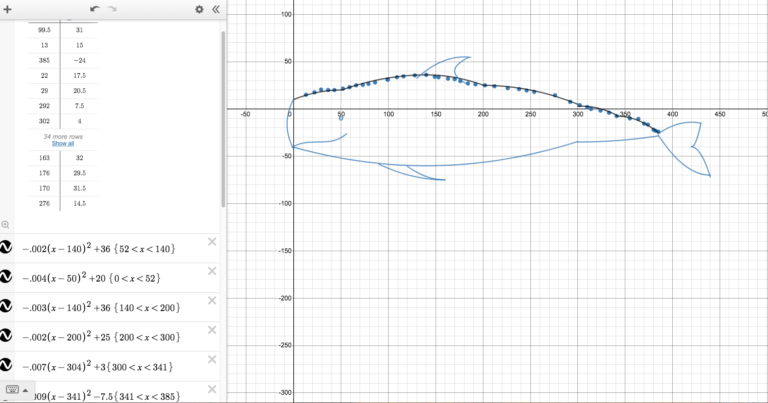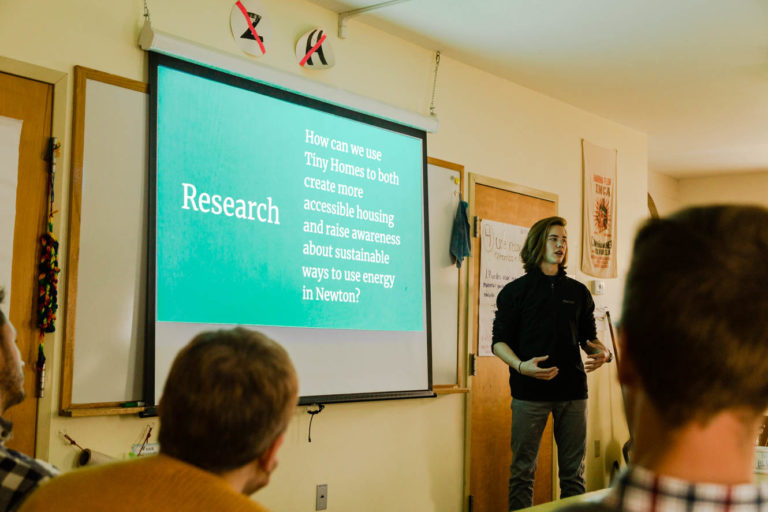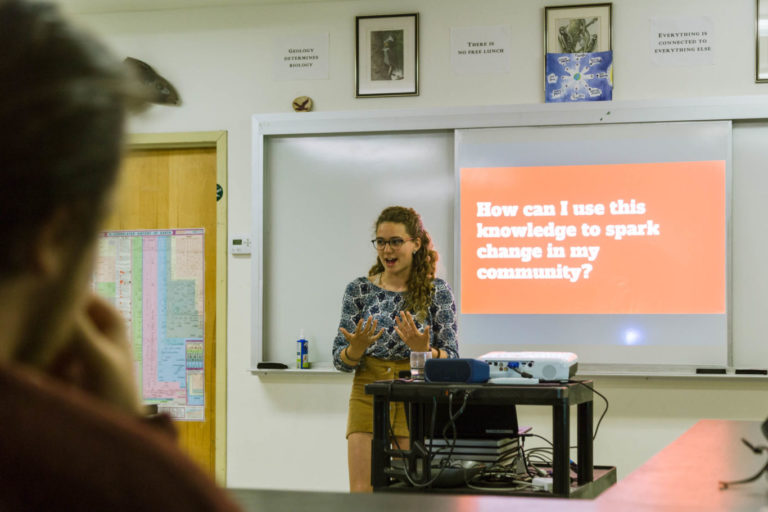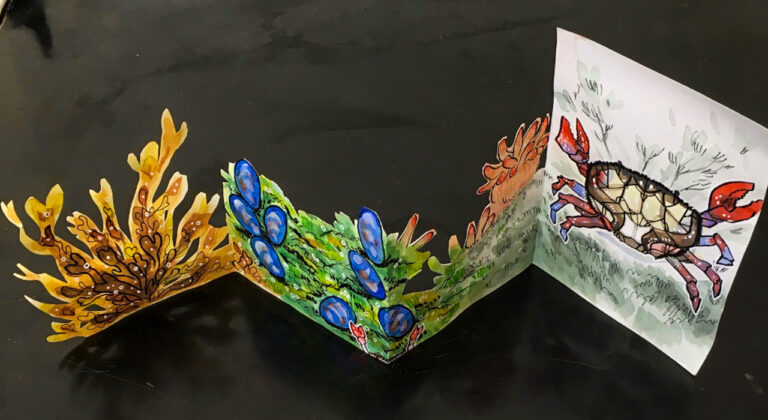Natural History and Ecology of the Maine Coast (H)
Required, Prerequisite: None
In this hands-on, place-based science course, students learn about marine and terrestrial ecology through immersion in the varied ecosystems found on the Maine coast. Chewonki Neck is located where the rivers meet the sea, along an estuary, with proximity to rocky coasts, sandy beaches, freshwater streams, bogs, ponds, and forests. Anchored by their direct experience, students hone their powers of observation, description and asking good questions. They integrate their field experience with knowledge from texts and lectures to develop an in-depth understanding of the natural history of the Maine coast. We learn how organisms interact with the environment, integrating evolution, geology, and conservation. Students leave with skills and knowledge that enable them to start to understand natural systems they encounter elsewhere.
Students attend three class meetings per week, as well as a weekly five-hour field lab. Additionally, students record observations of the natural world at their unique phenology site along the coast. Students learn to identify a wide variety of species. They also learn how to keep a detailed field journal to document work done in the field labs as well as at their phenology site. Students have the opportunity to delve deeply into a topic of their choice, studying anything from the nesting behavior of the Canada goose to grey seal communication.
Students work with a variety of texts in this course, including field guides, peer-reviewed research articles, and contemporary natural history writing. Selected texts include:
- Winter World and Trees in My Forest, Bernd Heinrich
- Gathering Moss, Robin Wall Kimmerer
- From Cape Cod to the Bay of Fundy: An Environmental Atlas of the Gulf of Maine, The Island Institute
